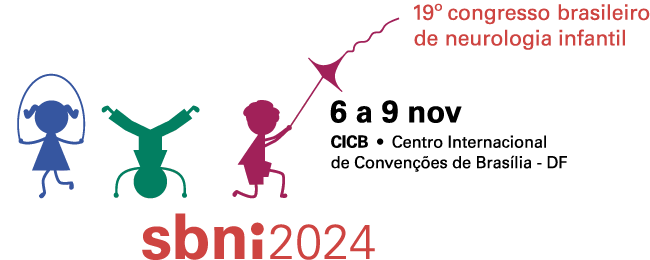Dados do Trabalho
Título
INTERACTIONS BETWEEN READING SKILLS, VOCABULARY, PHONOLOGICAL AWARENESS, AND BEHAVIORAL SYMPTOMS IN CHILDREN WITH LEARNING DIFFICULTIES
Introdução
Early childhood exploration and social interactions are crucial for cognitive and social
development. Oral language develops naturally, while written language is taught formally,
influenced by prefrontal cortex maturation. Reading acquisition, a complex skill, requires
expert teaching, with phonological processing being essential.
Children with ADHD face challenges compounded by learning disabilities, affecting
reading competency. Support strategies are crucial. Scarborough's Reading Rope
highlights phonological awareness, while the Science of Reading and Simple View of
Reading emphasize evidence-based teaching, especially for children with ADHD and
learning disabilities.
Objetivo
This study examines how word and nonword reading, vocabulary, phonological awareness,
nonverbal intelligence, and inattention/hyperactivity interact in students with learning
difficulties, aiming to understand their impact on reading performance and develop
effective educational strategies.
Método
Approved by the Research Ethics Committee (#64277522.9.0000.0068), the study
involved 4th and 5th graders from public schools in São Paulo, Brazil, selected based on
teacher recommendations or the Learning Disorders Outpatient Clinic (HC-FMUSP).
Cognitive and linguistic factors were analyzed using SNAP-IV for ADHD-related issues,
the Brazilian reading test (PRADE), and standardized measures for nonverbal intelligence,
phonological awareness, and vocabulary.
Resultados
Correlation analysis showed that strong links between word and nonword reading suggest
shared phonological processes. The lack of significant links between nonverbal
intelligence and reading or phonological tests suggests linguistic skills rely less on
nonverbal intelligence. Weak correlations between inattention/hyperactivity and
vocabulary may reflect ADHD's complex cognitive profile. A richer vocabulary supports
phonological skills, with phonological awareness playing a key role in reading
development.
Conclusão
The study reveals that word and nonword reading are strongly linked through shared
phonological skills. Nonverbal intelligence has minimal impact on reading and
phonological tasks, emphasizing the need for targeted linguistic interventions. Preserved
verbal skills in ADHD may result from increased engagement or vocabulary exposure. The
strong link between phonological awareness and reading underscores its central role in
reading development, guiding effective educational strategies.
Referências
American Psychiatric Association. (2013). Diagnostic and Statistical Manual of Mental Disorders - DSM V.
American Psychiatric Association. https://doi.org/10.1176/appi.books.9780890425596
Butterfuss, R., & Kendeou, P. (2018). The Role of Executive Functions in Reading Comprehension. In
Educational Psychology Review (Vol. 30, Issue 3, pp. 801–826). Springer New York LLC.
https://doi.org/10.1007/s10648-017-9422-6
Costa, D. S., de Paula, J. J., Malloy-Diniz, L. F., Romano-Silva, M. A., & Miranda, D. M. (2019). Parent
SNAP-IV rating of attention-deficit/hyperactivity disorder: accuracy in a clinical sample of ADHD, validity,
and reliability in a Brazilian sample. Jornal de Pediatria, 95(6), 736–743.
https://doi.org/10.1016/j.jped.2018.06.014
Diamond, A. (2012). Executive Functions. https://doi.org/10.1146/annurev-psych-113011-143750
Duke, N. K., & Cartwright, K. B. (2021). The Science of Reading Progresses: Communicating Advances
Beyond the Simple View of Reading. Reading Research Quarterly, 56(S1). https://doi.org/10.1002/rrq.411
Ehri, L. C. (2014). Orthographic Mapping in the Acquisition of Sight Word Reading, Spelling Memory, and
Vocabulary Learning. Scientific Studies of Reading, 18(1), 5–21.
https://doi.org/10.1080/10888438.2013.819356
Landi, N., Frost, S. J., Mencl, W. E., Sandak, R., & Pugh, K. R. (2013). Neurobiological Bases of Reading
Comprehension: Insights From Neuroimaging Studies of Word-Level and Text-Level Processing in Skilled
and Impaired Readers. In Reading and Writing Quarterly (Vol. 29, Issue 2, pp. 145–167).
https://doi.org/10.1080/10573569.2013.758566
Loucas, T., Baird, G., Simonoff, E., & Slonims, V. (2016). Phonological processing in children with specific
language impairment with and without reading difficulties. International Journal of Language &
Communication Disorders, 51(5), 581–588. https://doi.org/10.1111/1460-6984.12225
McDougal, E., Gracie, H., Oldridge, J., Stewart, T. M., Booth, J. N., & Rhodes, S. M. (2022). Relationships
between cognition and literacy in children with attention-deficit/hyperactivity disorder: A systematic review
and meta-analysis. British Journal of Developmental Psychology, 40(1), 130–150.
https://doi.org/10.1111/bjdp.12395
Molavi P, Nadermohammadi M, Salvat Ghojehbeiglou H, Vicario CM, Nitsche MA, Salehinejad MA.
ADHD subtype-specific cognitive correlates and association with self-esteem: A quantitative difference.
BMC Psychiatry. 2020 Oct 12;20(1).
Mushtaq NF, Ram D, Mukherjee P, Khan NA. Neurocognitive Impact of ADHD in Children with Learning
Disability: A Comparative Study. Psychol Stud (Mysore). 2022 Dec 7;67(4):441–6.
Paz-Alonso, P. M., Oliver, M., Lerma-Usabiaga, G., Caballero-Gaudes, C., Quiñones, I., Suárez-Coalla, P.,
Duñabeitia, J. A., Cuetos, F., & Carreiras, M. (2018). Neural correlates of phonological, orthographic and
semantic reading processing in dyslexia. NeuroImage: Clinical, 20, 433–447.
https://doi.org/10.1016/j.nicl.2018.08.018
Peng, P., & Kievit, R. A. (2020). The Development of Academic Achievement and Cognitive Abilities: A
Bidirectional Perspective. Child Development Perspectives, 14(1), 15–20.
https://doi.org/10.1111/cdep.12352
Peterson, R. L., & Pennington, B. F. (2015). Developmental dyslexia. Annual Review of Clinical
Psychology, 11, 283–307. https://doi.org/10.1146/annurev-clinpsy-032814-112842
Raven J, & Court, J. (1988). Matrizes progressivas coloridas de Raven. Casa do Psicólogo.
Thapar, A., & Cooper, M. (2016). Attention deficit hyperactivity disorder. In The Lancet (Vol. 387, Issue
10024,pp. 1240–1250). Lancet Publishing Group. https://doi.org/10.1016/S0140-6736(15)00238-X
Fonte de Fomento (se houver)
CAPES
Palavras Chave
Reading Competency; Low Academic Achievement; Executive Function
Área
Transtornos neuropsiquiátricos e distúrbios de aprendizagem
Autores
SHELLY LAGUS, GIOVANNA FERREIRA VIEIRA, DEBORA MARIA BEFI-LOPES, BEATRIZ BORBA CASELLA, ERASMO BARBANTE CASELLA
